Apple Sauce Machine: Revolutionizing the Production Process
Introduction: The Growing Popularity of Apple Sauce and Its Production Needs
Apple sauce has carved out its place as a cherished staple in both homes and commercial kitchens alike. As consumer demand for healthier and more natural products continues to rise, apple sauce is seen as an essential offering across various sectors—from snacks to baby food to desserts. However, meeting this increasing demand requires efficient, reliable, and high-capacity production systems. Apple sauce machines play a crucial role in modernizing the way we make this beloved product, ensuring that it reaches the market quickly, safely, and at scale. With evolving technology, the production process has become more automated, precise, and environmentally conscious, making it easier than ever to produce high-quality apple sauce at a competitive price.
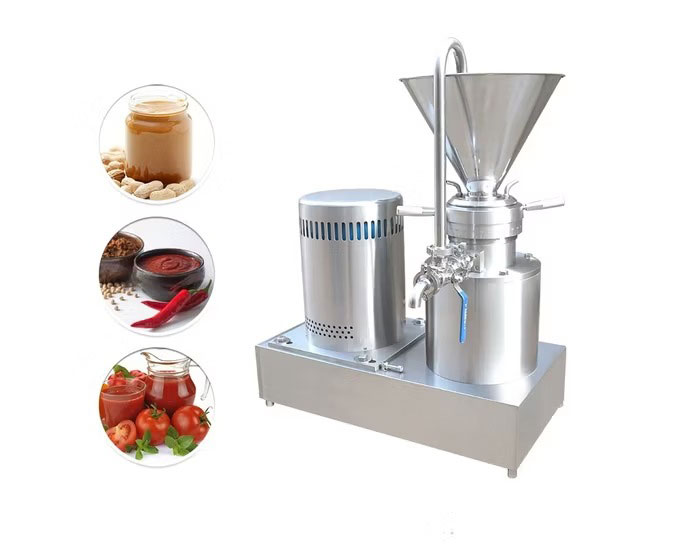
Why Apple Sauce is a Staple in the Food Industry
Apple sauce enjoys widespread popularity due to its versatility, nutritional benefits, and appeal to various dietary needs. It serves as a key ingredient in many recipes, acting as a base for pies, cakes, and dressings. Moreover, it’s a favorite in the baby food market thanks to its natural sweetness and ease of digestion. It is also favored in the health-conscious sector as a low-calorie, no-added-sugar alternative to high-fat condiments. Whether it's the rise of organic, preservative-free, or no-sugar-added options, apple sauce is in high demand—making it a cornerstone of the fruit processing industry. As trends continue toward healthier and more sustainable products, apple sauce's role as a staple continues to grow.
The Role of Apple Sauce Machines in Modern Food Processing
Apple sauce machines have transformed the way apple sauce is produced. These machines automate the traditionally labor-intensive processes of peeling, coring, cooking, and blending apples into a smooth consistency. This transformation has led to higher production rates and improved consistency across batches. By automating production, manufacturers can efficiently scale up to meet growing demand while maintaining the high standards expected in the market. From small businesses looking to expand to large manufacturers aiming for maximum output, apple sauce machines are an indispensable part of food processing today.
How Technology is Changing the Way We Make Apple Sauce
Technology continues to advance the apple sauce production process. From smart machines that adjust settings automatically to sensors that monitor temperature and consistency, the apple sauce industry is seeing more precision and less waste. Modern machines utilize Internet of Things (IoT) technology, allowing producers to collect real-time data and optimize their processes. Automation has also improved food safety, reducing the risk of contamination and ensuring compliance with strict hygiene regulations. These advancements allow businesses to produce apple sauce more efficiently, with greater consistency and quality, while minimizing costs.
What is an Apple Sauce Machine?
Overview of the Apple Sauce Machine and Its Functionality
An apple sauce machine is a sophisticated piece of equipment designed to turn fresh apples into smooth, ready-to-package apple sauce. These machines automate key steps such as washing, peeling, coring, chopping, cooking, and blending. Depending on the machine, it can also pasteurize the sauce, which is essential for extending its shelf life. Apple sauce machines come in various sizes, from small units suitable for artisanal producers to large industrial systems designed for high-volume production. Each machine is built with efficiency and safety in mind, ensuring consistent quality, minimal waste, and compliance with food safety regulations.
Types of Apple Sauce Machines: Which One is Right for You?
There are several types of apple sauce machines, each catering to different production scales and needs. For small-scale businesses, batch processing machines are ideal as they allow for flexibility and variety. Larger businesses typically require continuous processing systems, which handle much higher volumes and are ideal for mass production. The choice of machine depends on production volume, desired features, and budget. It’s important to consider the type of apple sauce you want to produce (organic, conventional, sugar-free) and whether the machine’s capabilities align with your goals.
Key Components of an Apple Sauce Machine
Apple sauce machines are built with several key components designed to facilitate smooth and efficient production. These typically include:
- Apple Preparation Section: where the apples are washed, peeled, and cored.
- Cooking and Blending Section: which applies heat and mixes the apples into a smooth consistency.
- Pasteurization Section: where the sauce is heated to kill bacteria and extend shelf life.
- Filling Section: which dispenses the finished product into containers for packaging.
Each of these components works in harmony to produce high-quality, safe, and consistent apple sauce.
How Apple Sauce Machines Work
The Apple Preparation Process: From Apples to Sauce
The process begins with fresh apples being washed thoroughly to remove dirt and chemicals. Once clean, they are fed into the peeling and coring section of the machine. The machine carefully removes the skin and core of the apples, leaving only the flesh behind. The peeled and cored apples are then cut into smaller pieces, which are ready for the next step in the cooking process.
Crushing, Heating, and Blending: The Core Mechanisms Explained
The apples are then crushed and heated in the cooking section. The crushing process breaks down the apple pieces into smaller particles, and the heating process softens the fruit, making it easier to blend into a smooth puree. This is typically done in a heated chamber, where the apples are cooked to the desired temperature. Once the apples are cooked, they are blended into a uniform sauce, ensuring that the texture is consistent across every batch.
The Role of Pasteurization in Apple Sauce Production
Pasteurization is a crucial step in ensuring the safety and longevity of apple sauce. During this process, the sauce is heated to a specific temperature for a set period of time to kill any bacteria or pathogens that may be present. This extends the shelf life of the product without the need for chemical preservatives. Pasteurization is essential for meeting food safety standards and maintaining the high quality of the sauce for consumers.
Advantages of Using an Apple Sauce Machine
Efficiency: Faster Production, Lower Labor Costs
Apple sauce machines are designed to maximize efficiency, significantly reducing production time and labor costs. By automating key tasks, the machines can produce large quantities of apple sauce in a fraction of the time it would take manually. This not only reduces labor costs but also helps businesses meet the demands of a fast-paced market.
Consistency: Achieving Uniform Quality Every Time
One of the greatest advantages of using an apple sauce machine is its ability to deliver consistent results. With manual production, it’s easy for variations in temperature, timing, or human error to affect the final product. However, apple sauce machines are programmed to maintain precise control over these variables, ensuring each batch is uniform in flavor, texture, and appearance.
Increased Yield and Reduced Waste
By optimizing the production process, apple sauce machines can increase yields and reduce waste. These machines ensure that every apple is processed efficiently, with minimal product loss during peeling, coring, and cooking. This improved efficiency translates into higher profitability for businesses.
Food Safety Standards and Hygiene Considerations
Apple sauce machines are designed to meet strict food safety standards. They are built with food-grade materials and equipped with automated cleaning systems that reduce the risk of contamination. These machines help maintain the highest hygiene standards, which is crucial for complying with international food safety regulations and ensuring the product’s safety for consumers.
Types of Apple Sauce Machines: Which One Fits Your Production Needs?
Manual vs. Automatic Apple Sauce Machines
Manual machines are best suited for small-scale or artisanal producers who prioritize flexibility and small-batch production. Automatic machines, on the other hand, are more efficient for large-scale operations where high output and consistency are essential. Automatic machines also often feature advanced technology, such as programmable controls, that help streamline the entire production process.
Batch Processing vs. Continuous Processing
Batch processing machines are perfect for businesses that need to produce small quantities of apple sauce in different flavors or recipes. Continuous processing machines, however, are designed for high-volume, mass production and can run without interruption for long periods. Choosing between these two types of machines depends on your business’s needs, production volume, and flexibility.
High-Capacity vs. Small-Scale Production Machines
High-capacity machines are designed for large manufacturers who need to produce apple sauce in bulk. These machines are capable of handling large volumes of fruit and produce high output. Small-scale machines, however, are better suited for smaller operations or businesses that need to maintain flexibility while still producing high-quality products.
Key Features to Look for in an Apple Sauce Machine
Adjustable Settings for Varying Apple Varieties and Sauces
Different apple varieties and sauce types (e.g., chunky, smooth, or sugar-free) require different processing settings. Look for machines that offer adjustable settings for temperature, blending speed, and cooking time to suit your needs.
Built-in Heating and Pasteurization Features
Machines with built-in heating and pasteurization functions are essential for ensuring food safety and extending the shelf life of your apple sauce. These features also help save on the cost and space required for separate pasteurization equipment.
Easy-to-Clean Designs for Food Safety
Food safety is paramount in the production of apple sauce. Look for machines that have easy-to-clean designs with removable parts to simplify sanitation. This will help ensure that your production line remains compliant with food safety regulations.
Energy Efficiency: Reducing Costs in the Long Run
Energy-efficient machines are an excellent investment for businesses looking to cut down on utility costs. Machines that require less energy to operate help you reduce operating expenses over time, making them a smart choice for long-term profitability.
How to Choose the Right Apple Sauce Machine for Your Business
Assessing Your Production Volume and Capacity Needs
The first step in choosing the right apple sauce machine is understanding your production volume. Small businesses may benefit from a smaller, more flexible machine, while larger operations may require a high-capacity machine that can handle continuous production.
Considering Space and Budget Constraints
Space and budget are critical factors when choosing an apple sauce machine. Smaller businesses might need to balance equipment size with available floor space, while large operations may prioritize scalability. Consider the long-term costs and potential ROI before making a final decision.
How to Balance Speed and Quality in Machine Selection
Speed and quality often go hand-in-hand in the apple sauce production process. However, it's essential to find the right balance. Machines that prioritize speed may compromise quality, while those that focus on high-quality output might be slower. Look for a machine that allows for flexibility in both speed and quality control.
The Role of Automation in Apple Sauce Production
How Automated Apple Sauce Machines Improve Production Speed
Automated apple sauce machines streamline the entire production process, making it possible to produce large quantities of apple sauce in a shorter period. Automation allows machines to work continuously, eliminating the need for manual labor and reducing human error.
The Benefits of Integration with Other Production Line Equipment
Modern apple sauce machines can be seamlessly integrated with other equipment in the production line, such as pasteurization units, filling machines, and packaging equipment. This integration enhances efficiency, reduces downtime, and ensures the production line operates as a cohesive system.
Monitoring and Control: Using PLC Systems for Better Output
Programmable Logic Controllers (PLCs) allow for real-time monitoring and control of the apple sauce production process. With PLCs, operators can make quick adjustments to settings, ensuring optimal production conditions and minimizing downtime.
Maintenance and Care for Apple Sauce Machines
Essential Maintenance Tasks for Longevity
Regular maintenance is critical to ensuring the longevity of your apple sauce machine. Routine tasks include cleaning, lubricating moving parts, and checking for wear and tear. Proper maintenance can extend the life of the machine and reduce costly repairs.
Common Issues and How to Prevent Them
Common issues in apple sauce machines include clogging, overheating, and malfunctioning sensors. Regular inspections and adherence to the manufacturer’s maintenance guidelines can help prevent these issues. Having a dedicated maintenance team on hand can also keep problems to a minimum.
The Importance of Regular Cleaning to Maintain Hygiene Standards
Apple sauce machines must be cleaned regularly to meet food safety standards. Build-ups of fruit pulp, sugar, or syrup can harbor bacteria, so it’s essential to follow cleaning protocols diligently. Machines that are easy to disassemble and clean are beneficial in maintaining hygiene.
How to Maximize the Efficiency of Your Apple Sauce Machine
Tips for Optimizing Production Speeds
To maximize efficiency, it’s important to adjust settings based on production needs. Ensure that the apples are properly prepared, and consider factors such as temperature, processing time, and blending speed to optimize production rates.
How to Adjust Settings for Different Apple Types and Consistencies
Different apple varieties may require adjustments to processing settings. Machines with adjustable controls allow for flexibility in adapting to varying apple types and consistency preferences. Fine-tuning the settings can ensure that your apple sauce meets desired quality standards.
Streamlining the Process: Avoiding Bottlenecks in the Production Line
Identifying potential bottlenecks in the production process and addressing them early is key to maximizing efficiency. For example, coordinating the timing of cooking, blending, and pasteurization can prevent delays and ensure smooth production.
Apple Sauce Machine Troubleshooting: What to Do When Things Go Wrong
Identifying and Fixing Common Mechanical Issues
Mechanical issues such as motor failure, clogged filters, or temperature inconsistencies can occur during production. Troubleshooting these issues involves checking machine parts, resetting controls, and ensuring that all components are functioning properly. Regular maintenance can help reduce the likelihood of these problems.
Dealing with Production Slowdowns and Inconsistent Output
If production slows down or if the output is inconsistent, it may indicate issues with temperature control, blending efficiency, or machine calibration. Diagnosing these problems early and consulting with technical support can help get the production back on track.
The Importance of Having a Technical Support Team
Having access to a reliable technical support team is vital for resolving production issues quickly. Whether it's routine maintenance or troubleshooting complex problems, having experts available can minimize downtime and keep your production process running smoothly.
Integrating Your Apple Sauce Machine with Other Food Processing Equipment
Bottling and Packaging: The Next Steps After Sauce Production
Once the apple sauce is produced, it needs to be bottled and packaged for distribution. Modern apple sauce machines can be integrated with bottling and packaging equipment to streamline the entire process, from production to final packaging.
How to Link Apple Sauce Machines with Pasteurization Units
Apple sauce machines can be linked with pasteurization units for seamless production. This ensures that the sauce is pasteurized immediately after blending, maintaining food safety standards and extending shelf life.
Adding Labeling and Sealing Machines for Complete Automation
Integrating labeling and sealing machines allows producers to automate the entire apple sauce production line. This automation reduces labor costs and ensures that the product is properly labeled and sealed for retail.
The Impact of Apple Sauce Machines on Food Safety Standards
Ensuring Consistency and Hygiene in Production
Apple sauce machines are designed to meet high hygiene standards, reducing the risk of contamination and ensuring consistency across batches. This ensures that every jar of apple sauce meets the same high-quality standards.
Compliance with International Food Safety Regulations
Apple sauce machines are built to comply with international food safety regulations, ensuring that they meet the necessary health standards for global distribution. These regulations cover everything from ingredient handling to packaging and labeling.
How Technology Supports Better Traceability and Quality Control
Advanced apple sauce machines use technology such as IoT sensors and PLC systems to enhance traceability. This enables producers to monitor every aspect of the production process, ensuring that quality standards are met and any deviations are quickly addressed.
Cost Considerations: How Much Should You Spend on an Apple Sauce Machine?
Initial Costs vs. Long-Term Savings
While apple sauce machines can be a significant upfront investment, they offer long-term savings in labor, time, and waste reduction. It’s important to assess the long-term return on investment (ROI) when deciding on the budget for your machine.
Evaluating the Return on Investment (ROI)
The ROI of an apple sauce machine depends on factors such as production volume, operational costs, and the machine's durability. Calculating the expected ROI will help you make an informed decision about your purchase.
Factors That Affect the Overall Price of Apple Sauce Machines
Several factors contribute to the cost of an apple sauce machine, including its capacity, automation features, and additional functionalities like pasteurization or integration with other equipment. Higher-quality machines with advanced features will come at a higher price, but they can deliver better efficiency and longer lifespans.
How to Scale Your Apple Sauce Production
Scaling Up: Upgrading Your Equipment for Increased Output
As your business grows, you may need to scale up your production capacity. Upgrading your apple sauce machine allows you to handle higher volumes without sacrificing quality. Whether you choose to add more machines or upgrade to a more powerful model, scaling up is a necessary step for growing businesses.
Expanding Production with Multi-Unit Systems
For large-scale production, multi-unit systems allow manufacturers to handle increased output while maintaining consistency. By linking multiple machines in a system, you can boost production without compromising quality or efficiency.
Managing High Volumes: Automation vs. Manual Control
In high-volume production, automation is key. Automated apple sauce machines can run 24/7, minimizing human error and maximizing output. However, some level of manual control may still be necessary for quality checks and minor adjustments.
Frequently Asked Questions (FAQs)
What is the difference between manual and automatic apple sauce machines?
Manual apple sauce machines require more human intervention and control, making them suitable for smaller-scale operations or businesses with limited production needs. Automatic machines, on the other hand, are designed for high-volume, continuous production, offering greater efficiency, consistency, and reduced labor costs.
How much apple sauce can an industrial machine produce per hour?
The production capacity of an industrial apple sauce machine varies depending on the model and specifications. Some machines can produce anywhere from 500 to 2,000 liters per hour, making them suitable for small-scale and large-scale production operations. It's important to choose a machine that matches your business's production volume needs.
How long do apple sauce machines last?
With proper maintenance and care, an apple sauce machine can last anywhere from 10 to 20 years. Regular cleaning, lubrication, and troubleshooting can help extend the life of the machine, while also reducing the need for costly repairs.
Do apple sauce machines require specialized maintenance?
Yes, apple sauce machines require specialized maintenance to ensure their longevity and optimal performance. Key tasks include routine cleaning, checking for wear and tear on moving parts, adjusting settings, and inspecting the machine for potential mechanical issues. It's essential to follow the manufacturer's maintenance guidelines for the best results.
What are the key factors to consider when choosing an apple sauce machine?
When selecting an apple sauce machine, consider factors such as production volume, available space, budget, desired automation level, and specific features like pasteurization or blending options. Additionally, it's essential to assess how well the machine integrates with other equipment in your production line.
Can apple sauce machines handle different apple varieties?
Yes, many modern apple sauce machines come with adjustable settings that allow you to process various apple types, from tart to sweet varieties. These machines provide the flexibility to adjust blending speeds, temperatures, and processing times, ensuring optimal results for different apples.
What kind of energy efficiency should I look for in an apple sauce machine?
When evaluating energy efficiency, look for machines with features such as energy-saving motors, insulated heating elements, and optimized production processes that reduce energy consumption. Energy-efficient machines help reduce utility costs and are a more sustainable option in the long term.
Are apple sauce machines easy to clean?
Yes, most modern apple sauce machines are designed for easy cleaning. Look for machines with removable parts, smooth surfaces, and self-cleaning features to simplify sanitation. Regular cleaning is crucial to maintaining food safety standards and ensuring the machine operates efficiently.
How does automation improve the production of apple sauce?
Automation improves apple sauce production by increasing speed, reducing human error, and minimizing labor costs. Automated machines can handle multiple production steps, from crushing apples to blending, pasteurization, and packaging, resulting in faster and more consistent output.
What are some common problems with apple sauce machines?
Common issues with apple sauce machines include clogging, overheating, malfunctioning sensors, and inconsistent output. These problems can often be prevented with regular maintenance, careful monitoring of machine settings, and prompt repairs. It's important to address any issues immediately to avoid delays in production.
Can I integrate my apple sauce machine with other equipment?
Yes, apple sauce machines can be integrated with other food processing equipment, such as pasteurization units, filling machines, and packaging lines. This integration ensures a seamless and efficient production process, reducing downtime and increasing overall productivity.
What are the benefits of pasteurization in apple sauce production?
Pasteurization is a critical process in apple sauce production as it ensures food safety by killing harmful bacteria and extends the shelf life of the product. Machines with built-in pasteurization features streamline the process, eliminating the need for separate pasteurization equipment and improving production efficiency.
Must-Read Blogs For Chain Restaurants Owner

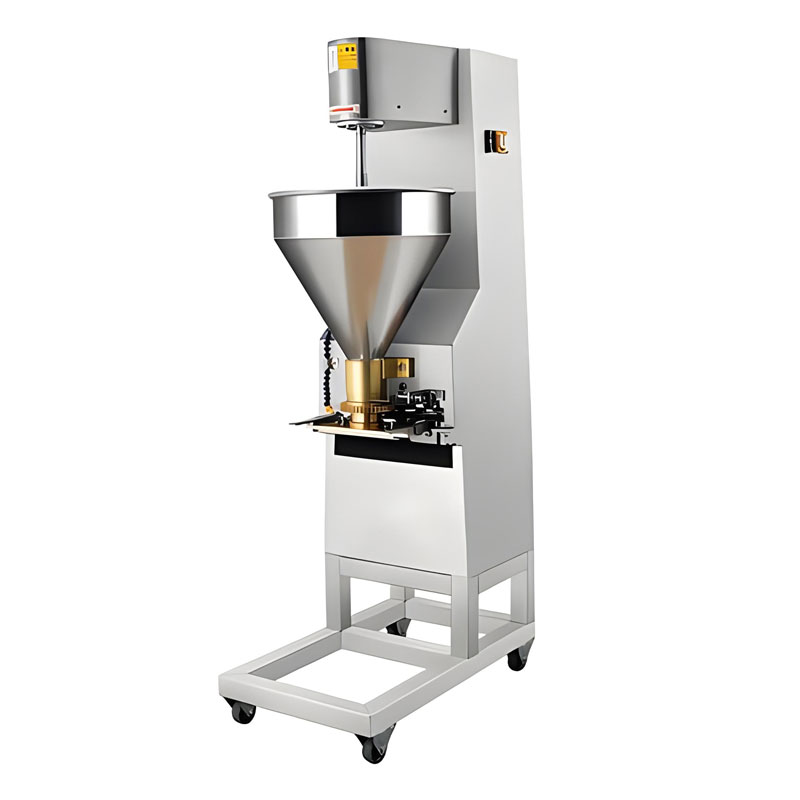
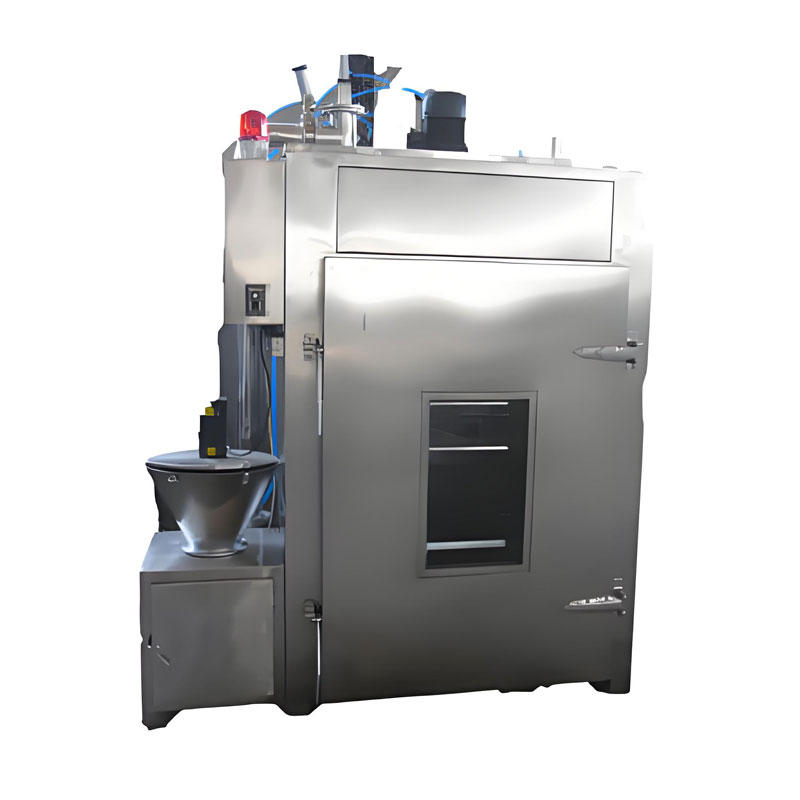
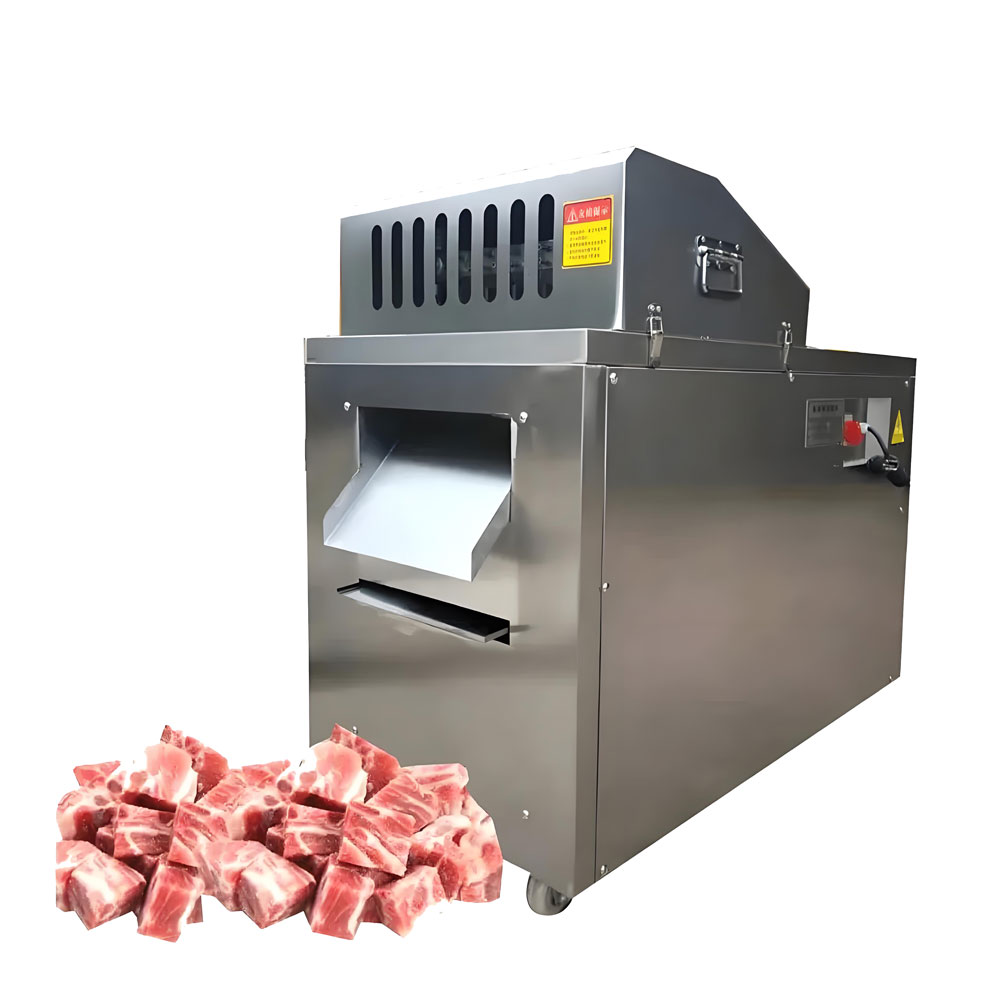
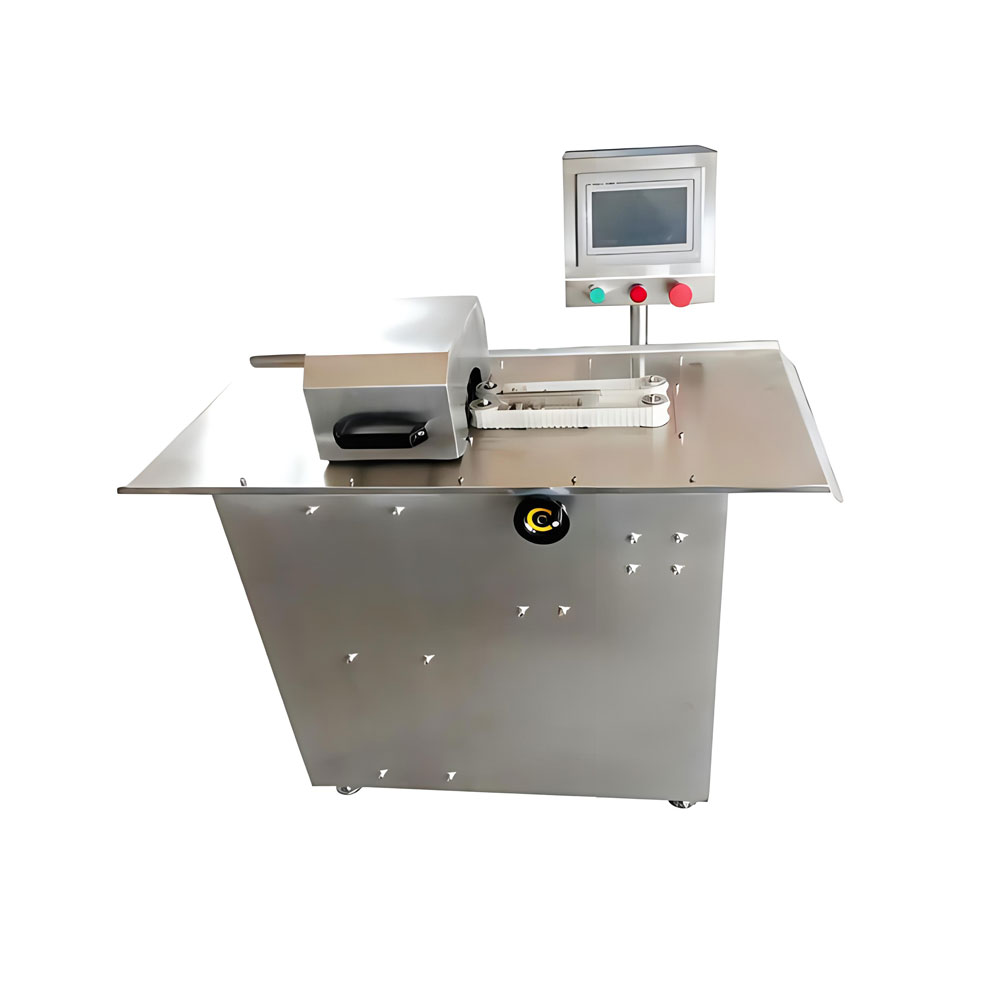
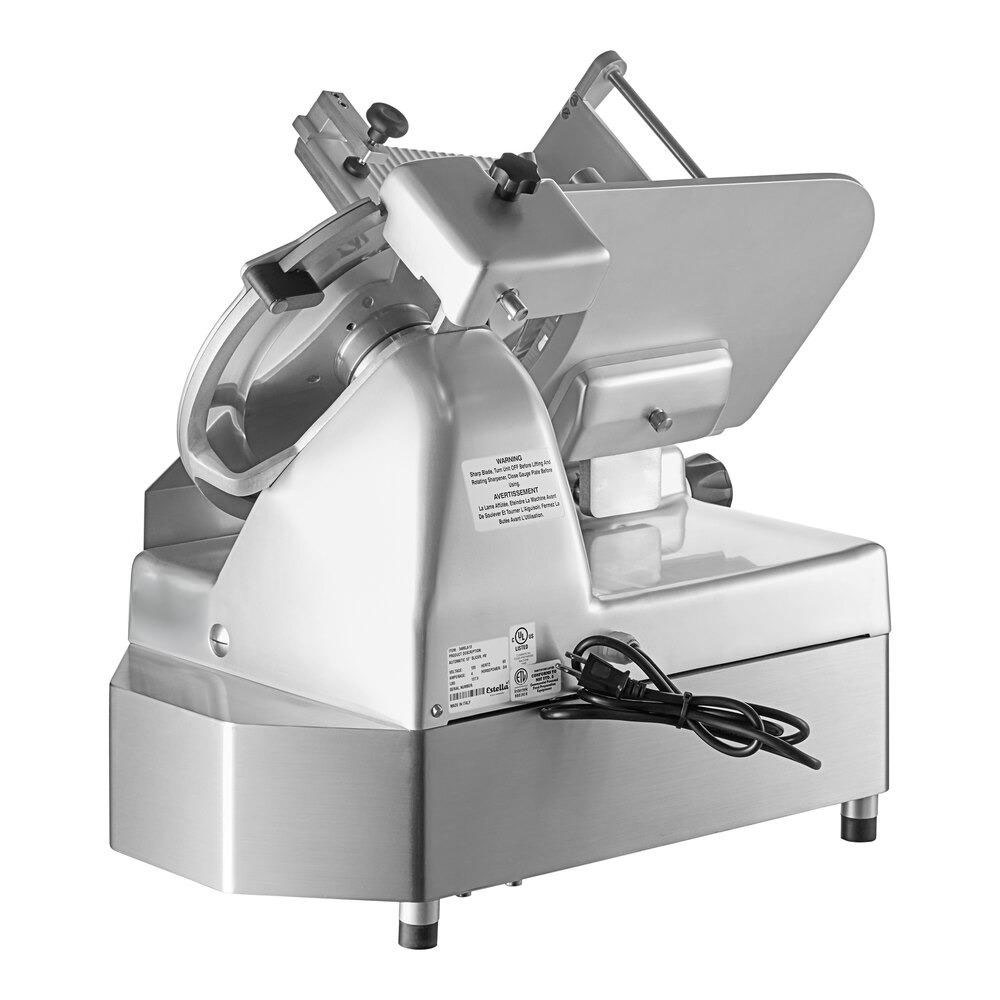
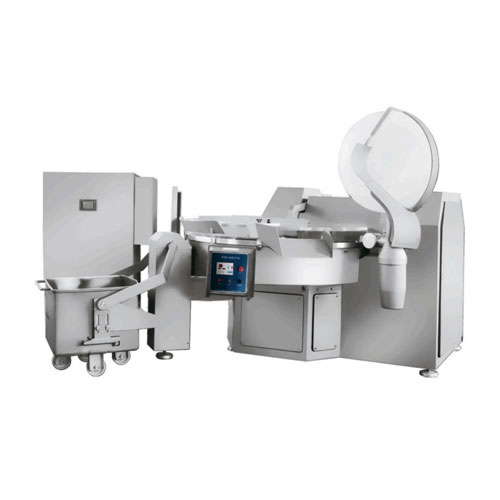
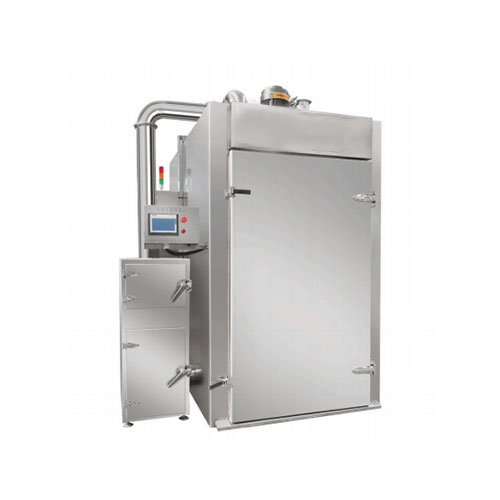
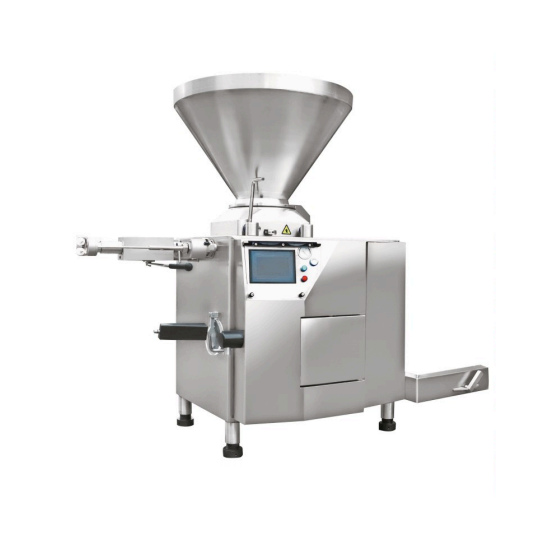
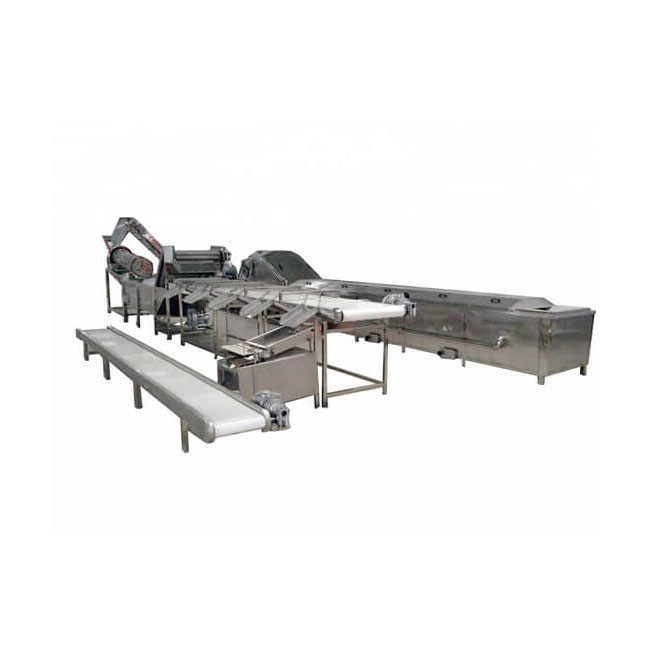
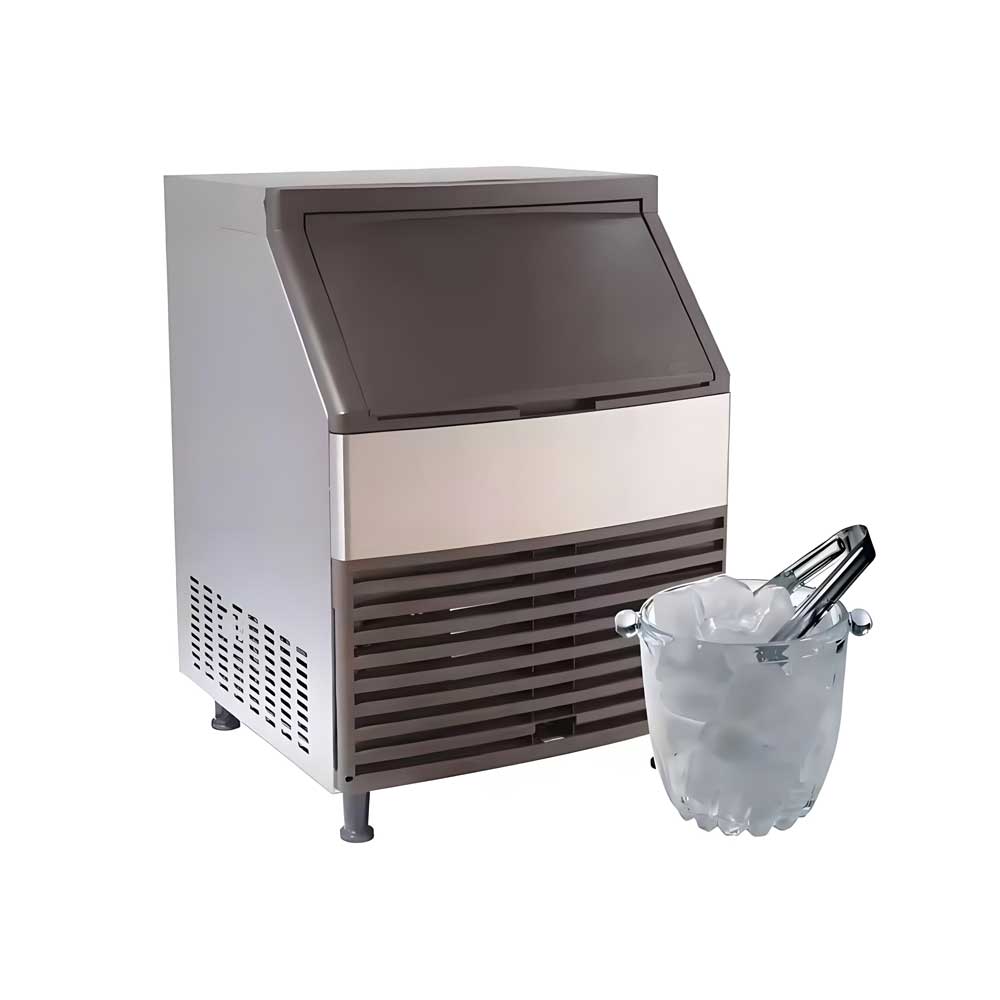
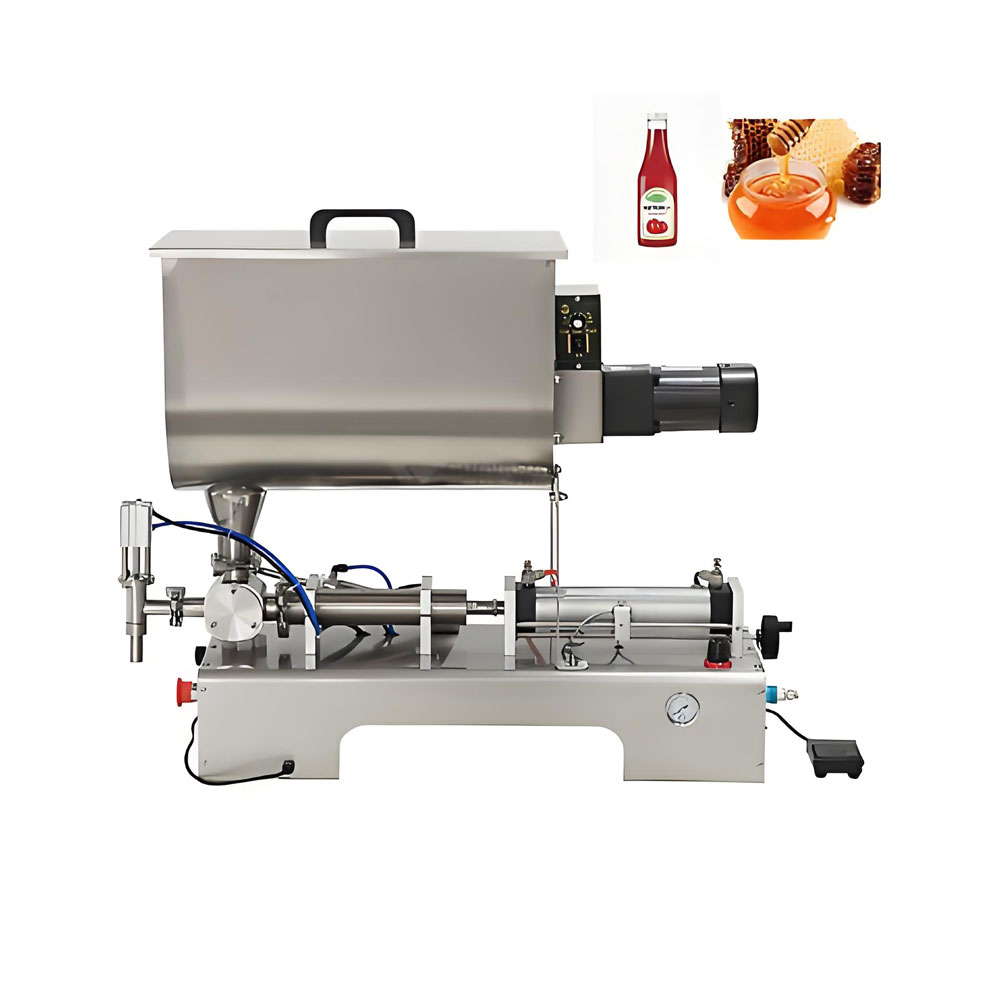 Sauce Filling Machine
Sauce Filling Machine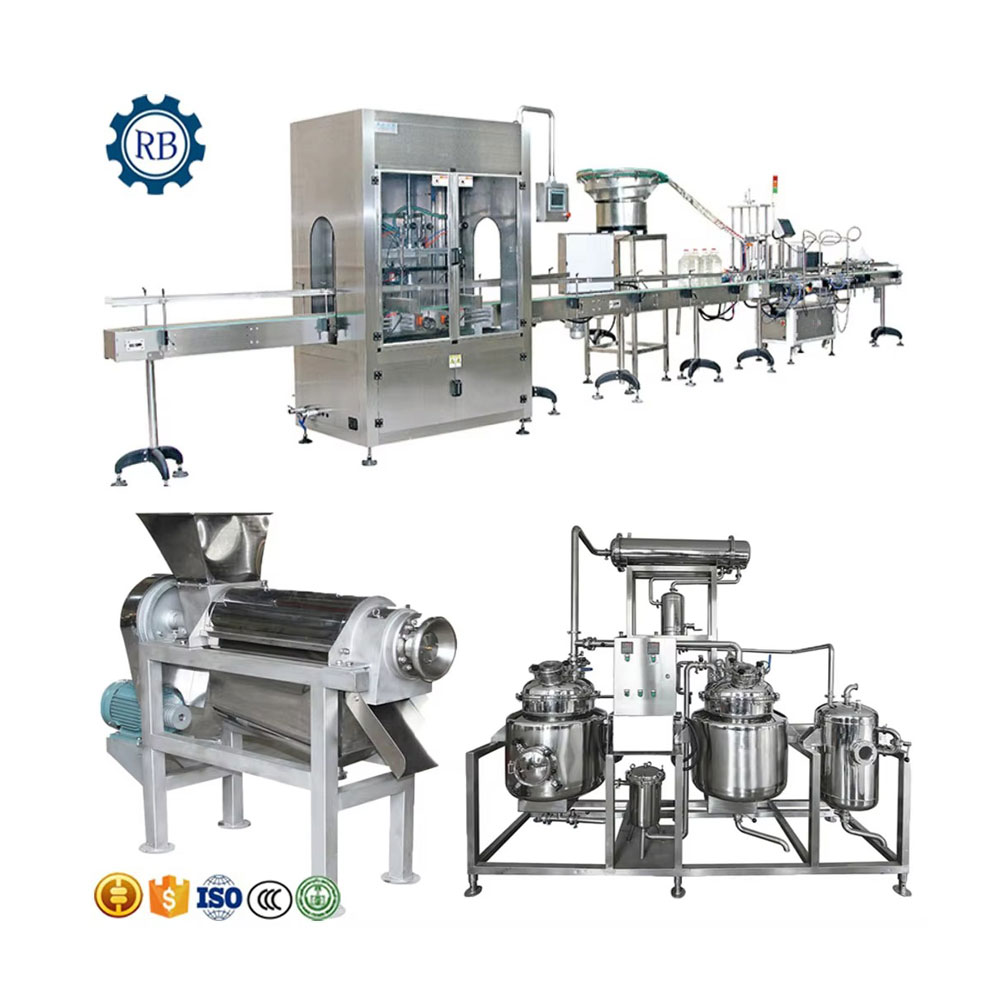 Tomato Sauce Machine
Tomato Sauce Machine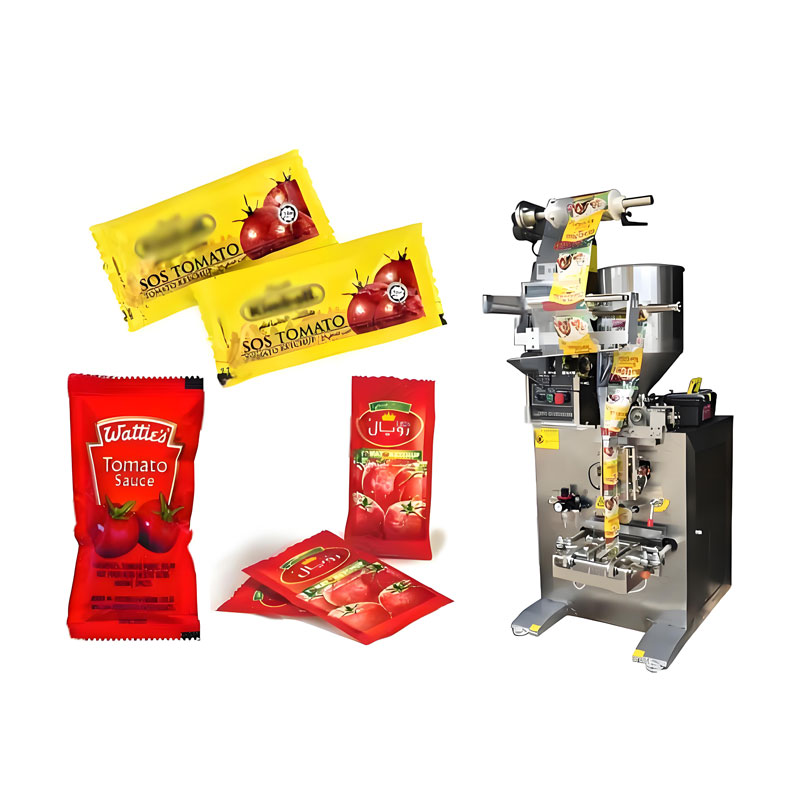 Tomato Sauce Packaging Machine
Tomato Sauce Packaging Machine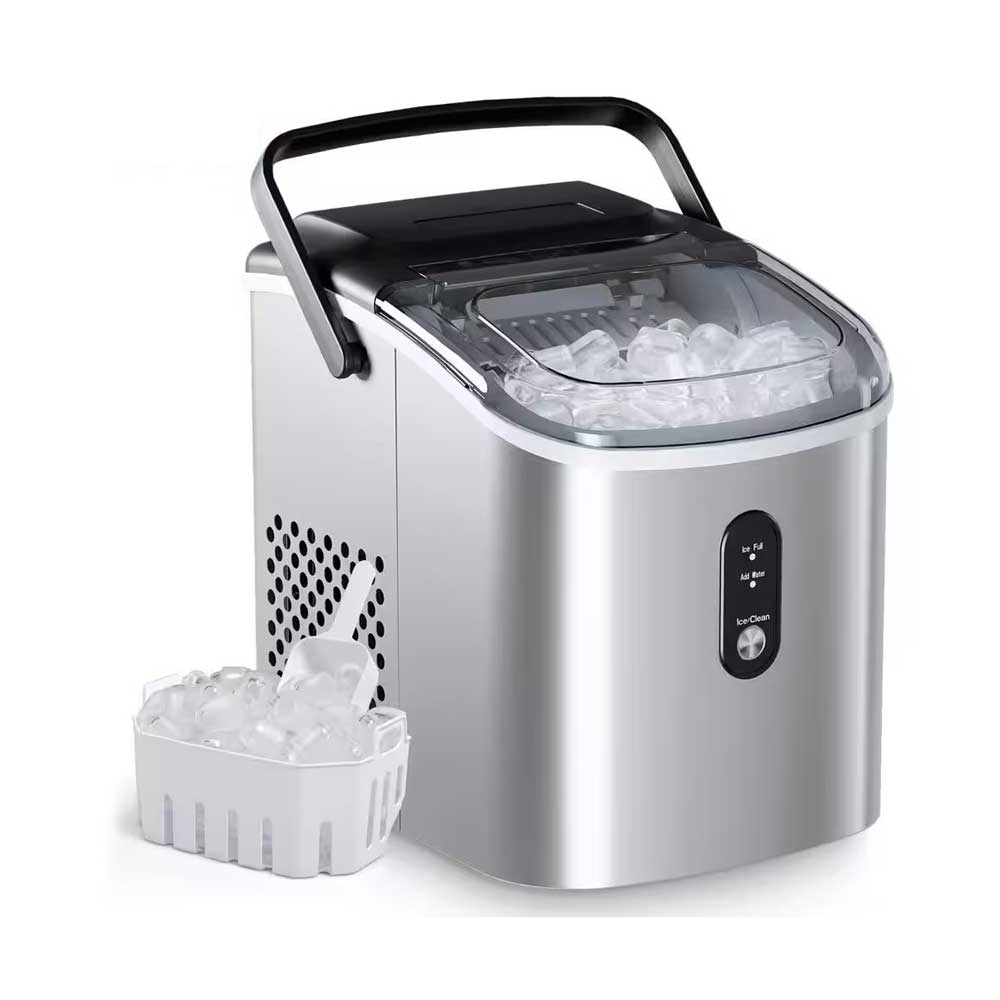 Portable Flake Ice Machine
Portable Flake Ice Machine
Ready to Get Started?